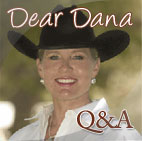Identifying your horse

From ‘hot branding’ to DNA analysis, various forms of ID have come a long way
By Daniel H. Grove / Horsetrader columnist
We all love our horses. We invest time and money into their care and upkeep. I think it is natural for us to want to protect the emotional and financial investment we have in our horses. This month I am going to discuss the various forms of identifying our horses.
Registration Paperwork — Each breed registry has its own method for identifying the animal for which they produce papers for. Pictures, written descriptions, and drawings are found on these different documents. They usually also include the parentage of the registered horse.
What makes for a helpful client? Ask a vet…
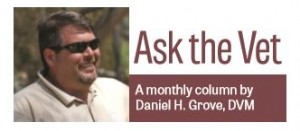 In this month’s article, we are going to take a little turn. I have been asked for a Top 10 list of traits in a perfect client. Some may find they feel they are lacking in some areas. This list is not to make anyone feel bad, it is more about enlightening you as to what helps make an equine veterinarian’s job easier in my opinion. The list is in no particular order. Let’s get to it!
In this month’s article, we are going to take a little turn. I have been asked for a Top 10 list of traits in a perfect client. Some may find they feel they are lacking in some areas. This list is not to make anyone feel bad, it is more about enlightening you as to what helps make an equine veterinarian’s job easier in my opinion. The list is in no particular order. Let’s get to it!
Fall horse care
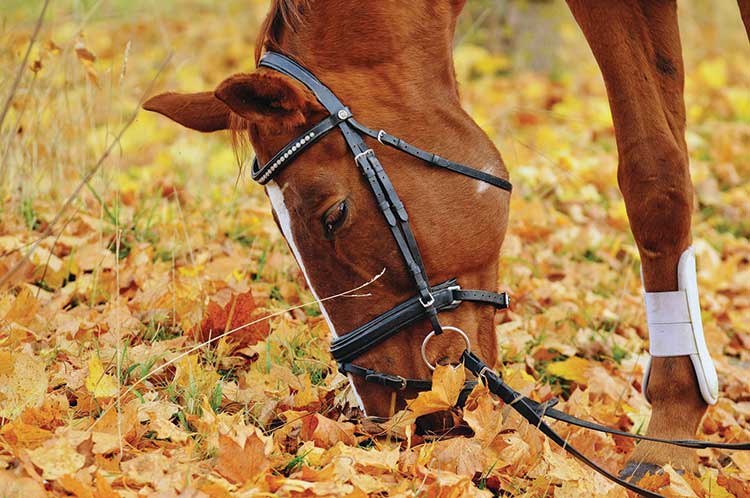
By Daniel H. Grove, DVM
Fall is upon us, and this is the time of year that often featuers horses in new homes after summer sales.
Pre-purchase exams seem to be more numerous than normal. With so many new horse owners, let’s review some of the recommendations for veterinary care for your horses in the fall.
Your horse’s eye health
 The eyes are extremely important to our equine companions. If we lose one or both eyes, it can be career-ending for our animals. Signs of eye discomfort are blepharospasm (squinting), tearing of the eye, rubbing of the eyes, and changes in the normal appearance of the eyes. This month I will discuss some of the more common eye ailments I see and some tips on what can be done. Before we proceed, I feel I should mention that most eye problems should be seen sooner rather than later. Waiting can be devastating on some of these problems.
The eyes are extremely important to our equine companions. If we lose one or both eyes, it can be career-ending for our animals. Signs of eye discomfort are blepharospasm (squinting), tearing of the eye, rubbing of the eyes, and changes in the normal appearance of the eyes. This month I will discuss some of the more common eye ailments I see and some tips on what can be done. Before we proceed, I feel I should mention that most eye problems should be seen sooner rather than later. Waiting can be devastating on some of these problems.
Eyelid Lacerations
Eyelid lacerations are extremely common. One Friday evening, I had three emergency pages back-to-back, all eyelid lacerations. If treated promptly, most can be sutured. If no tissue is lost, often times full function returns and there is little to no cosmetic defect. I usually give some sedation, locally anesthetize the skin and repair the laceration. A tetanus vaccine update and some antibiotics are often the only other medications needed.
Uveitis
The uvea is the back part of the eye itself. Some breeds are more prone to the condition, but it is thought that an infectious agent causes the disease, although it cannot always be proven. This area in the eye gets very inflammed and can fill with pus. These conditions are very painful and can cause significant blepharospasm (squinting) and tearing of the eye. The eyes can get a bulging appearance to them and they can appear yellowed. These are many ways these are treated, but anti-inflammatories are very important to reduce the swelling and discomfort.
Summer Sores
By Daniel H. Grove, DVM

Summer sores are a big problem for horses in climates that are warm and moist. We discussed them a few years ago, but I think it is time to revisit them. I am seeing them very frequently, and so are many other practitioners. Let’s delve into what they are, some treatment strategies and prevention.
Habronema and Draschia are the names of the nasty little parasites that causes this sometimes-challenging-to-deal-with disease. They are two of the stomach worms of horses. and in their normal life cycle, do not seem to cause much harm. When the parasite gets deposited in an area of the skin or other external area, they can wreak havoc. They cause a non-healing wound that often times increases in size. It can be bordered by a layer of scar tissue that makes it challenging to get drugs to the source of the problem to kill them off. Often times, small granules are associated with the lesions. If in doubt, a simple biopsy of the lesion can often diagnose the problem. This can be an important part of the diagnosis, as some lesion can mirror other problems.
Fly control
By Daniel H. Grove, DVM
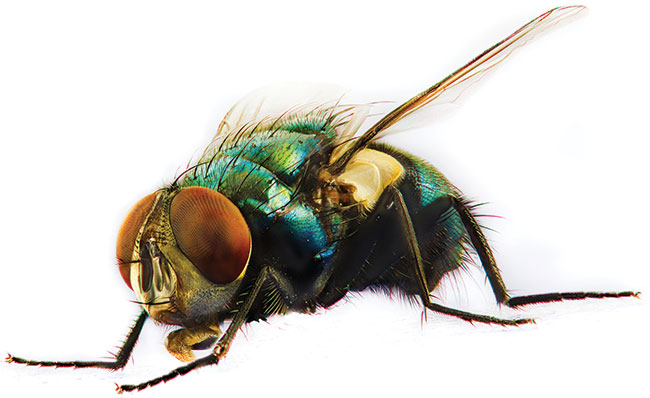
If you have horses, you likely have to deal with fly problems at least part of year. Flies are necessary to the environment. They help to breakdown waste products and can even be beneficial in cleaning up infected wounds. Flies also can transmit diseases and spread infection to wounds. They also can cause stress to our animals just from their annoyance. This month, let us discuss some methods for controlling flies.
Fly Sprays
Fly sprays come in either concentrated or ready to use forms. I find they do not usually last very long. It can be helpful to switch brands periodically as the flies become accustomed to one mixture so trying a different one is sometimes helpful. There are also all natural solutions that some owners prefer.
Communication
By Daniel H. Grove, DVM

Communication is an essential component to any relationship. Whether it be between two people, countries, companies — anything. If you want any relationship to work between two or more parties, communication is key. The relationship between equine veterinarian and client is no different.
Equine medicine is a bit different from many other medical and patient/client relationship. Even when you compare it to small animal medicine, to me, it is a more personal relationship. In small animal medicine you usually speak with office staff to setup an appointment or get a refill. A veterinary technician often times is the first to see your animal and answer some of your questions. You get to see and speak to the veterinarian (in non-COVID times) during the exam. Most procedures are done in the back, and then you may see your veterinarian just prior to leaving.
Babies, Babies, Babies!
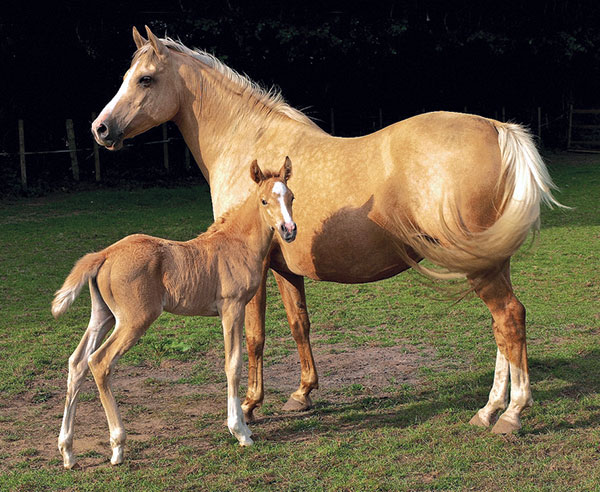
By Daniel H. Grove, DVM
Foals are about to start hitting the ground left and right. It is a rare day for me in the peak of foaling season to not be doing a new foal exam (or two or three!). A new foal exam and care in the first few days is vital to keeping a healthy herd, but the first year of life for foals requires some special care that is a bit different than for the adults.
Vet visit, then meds

Proper examination is the safest (and legal) path to prescriptions
By Daniel H. Grove, DVM
Here is a question that can be a point of contention between many veterinarians and their clients:
“Why does my veterinarian need to see that before I get medication? This is a simple problem, and I just need the medication.”

Let us take a look at why it is necessary for a patient to first be seen before dispensing or prescribing medication.
I will start with the client’s point of view. The client may be a very experienced horse person who has been doing this for 30-plus years. They have a minor cut on the horse that they are comfortable cleaning and wrapping to allow it to heal. They have had the veterinarian out for 10 of these in the past and the treatment is always the same: put them on some antibiotics, give them some bute and give a tetanus shot. Why can’t they just pick up some antibiotics and treat the horse without the expense of the veterinarian seeing the horse?
New horse owner guide
Bt Daniel H. Grove, DVM
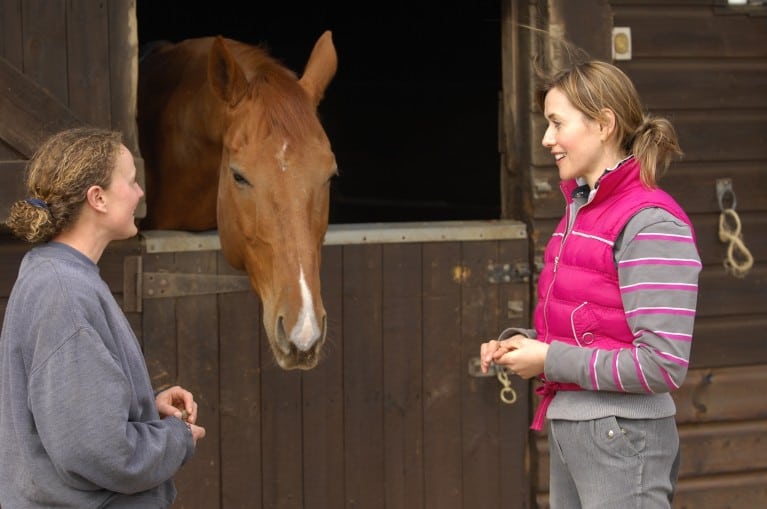
One benefit I have seen after the COVID 19 period a few years back has been an increase in outdoor activities. I thought a little insight into the costs of ownership and some items you should have on hand as a new horse owner.
The expensive part of owning a horse starts after the purchase. While there is often time a significant upfront investment into owning a horse, it really is, usually, just a drop in the bucket. Let us look at a list of things you should budget for in your monthly expenses with horse ownership.


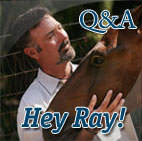
 Read Columns
Read Columns
